
Day 1 – Writing for Publication Workshop – 18 June 2024, 10am-4pm
This workshop covers a range of strategies: targeting a journal, writing to prompts, types of prompt for academic writing, ‘snack’ writing, goal-setting for writing, freewriting, generative writing, analysing academic writing in your field, criteria, writing an abstract, using prompts in series, outlining, dealing with reviewers’ feedback, writing groups, micro-groups and retreats. Many of these can be used to prepare for a concentrated spell of writing at a writing retreat – which follows tomorrow. This is a practical workshop. The aim of the writing activities in this workshop is to let you try these strategies and consider how/if/where/when they could fit into your writing practice. You can use these to write for your article during the workshop, and you have a day’s writing to develop it tomorrow.
Day 2 – Writing Retreat – 19 June, 9am-4pm
Aims – To provide dedicated writing time and develop productive writing practices.
Format
This structured retreat uses the ‘typing pool’ model. We all write at the same time, for fixed time slots, using goal-setting and peer and self-monitoring for our individual writing projects. Because we all write together, we can discuss our goals at the start and end of the day (10-15 minutes). Almost all the retreat time is writing time, with regular breaks.
Learning objectives
1. Understand the Structured Writing Retreat model.
2. Structure a writing day.
3. Maintain well-being during intensive periods of writing.
Day 3 – Free Writing Day
An in-person writing day. Lunch will be provided.
Book your place here under ‘Writing Academy’ – 18/06/2024 to 20/06/2024’ in the drop-down menu.
For any queries regarding this workshop, please contact RKE Development Framework
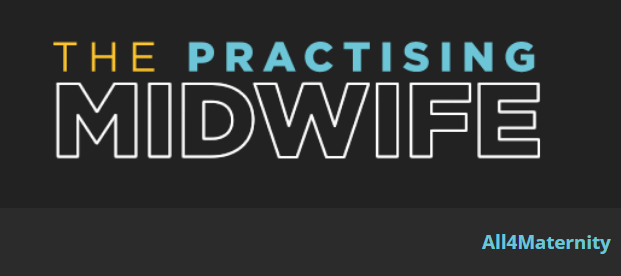 Joanne is doing her Clinical Doctorate in the Centre for Midwifery & Women’s Health (CMWH) specialising in personalised care for women of advanced maternal age (AMA). This PhD study is matched-funded by University Hospitals Dorset (UHD) NHS Foundation Trust and Bournemouth University.
Joanne is doing her Clinical Doctorate in the Centre for Midwifery & Women’s Health (CMWH) specialising in personalised care for women of advanced maternal age (AMA). This PhD study is matched-funded by University Hospitals Dorset (UHD) NHS Foundation Trust and Bournemouth University.  Her PhD is supervised and supported by Profs. Vanora Hundley and Edwin van Teijlingen at BU and former BU Professor Ann Luce (who has recently moved to the University of the West of Scotland) and Dr. Latha Vinayakarao in Bournemouth Maternity Hospital.
Her PhD is supervised and supported by Profs. Vanora Hundley and Edwin van Teijlingen at BU and former BU Professor Ann Luce (who has recently moved to the University of the West of Scotland) and Dr. Latha Vinayakarao in Bournemouth Maternity Hospital.
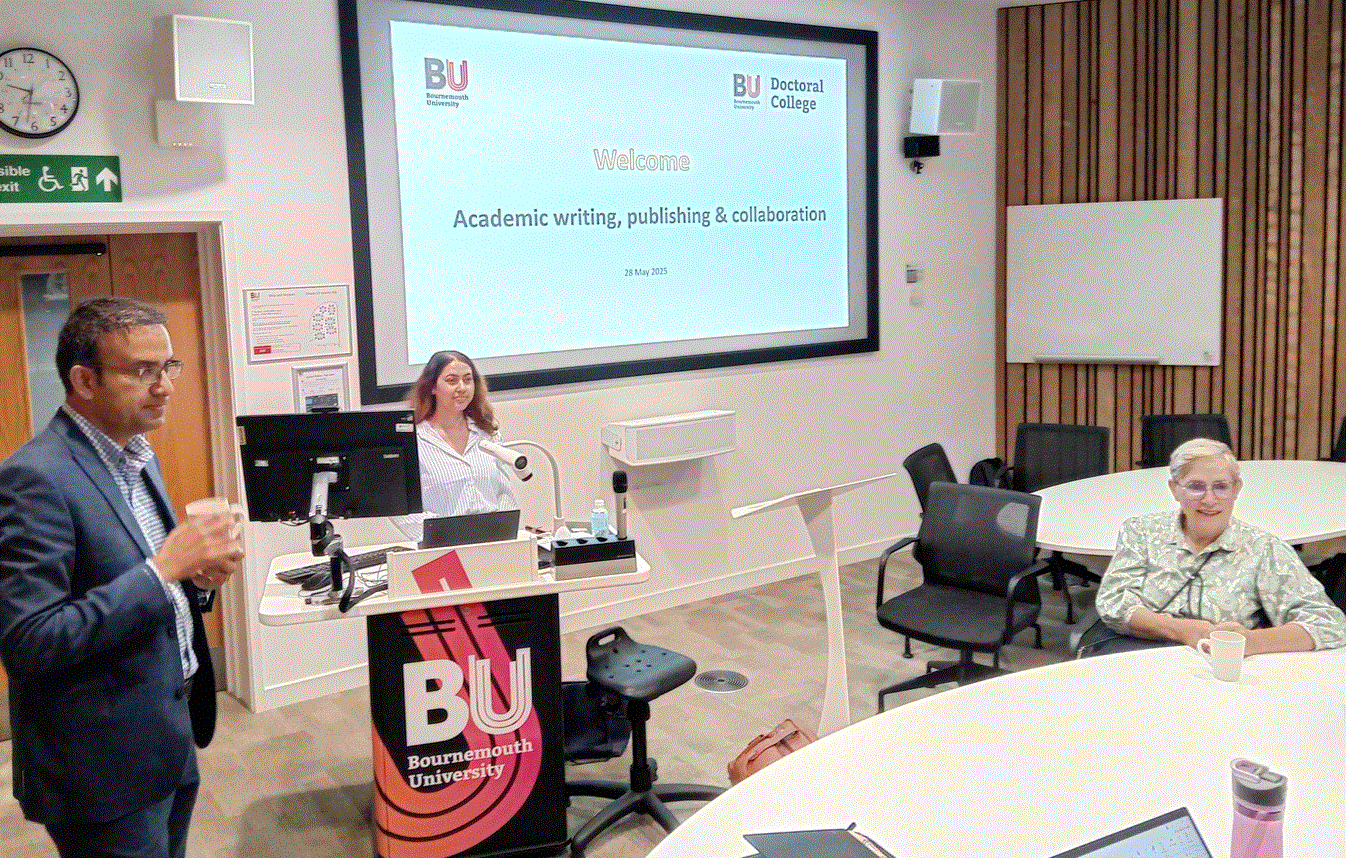
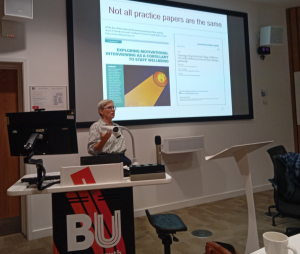

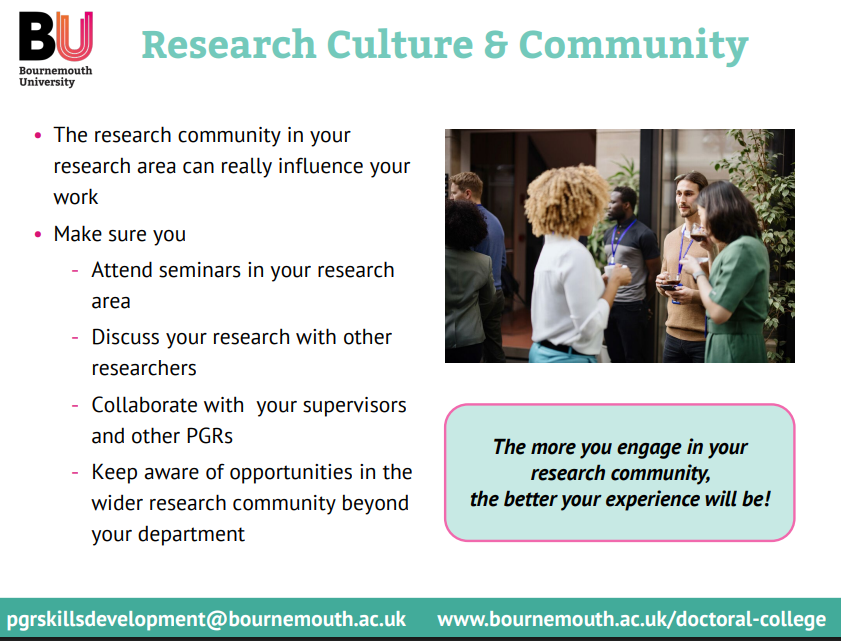

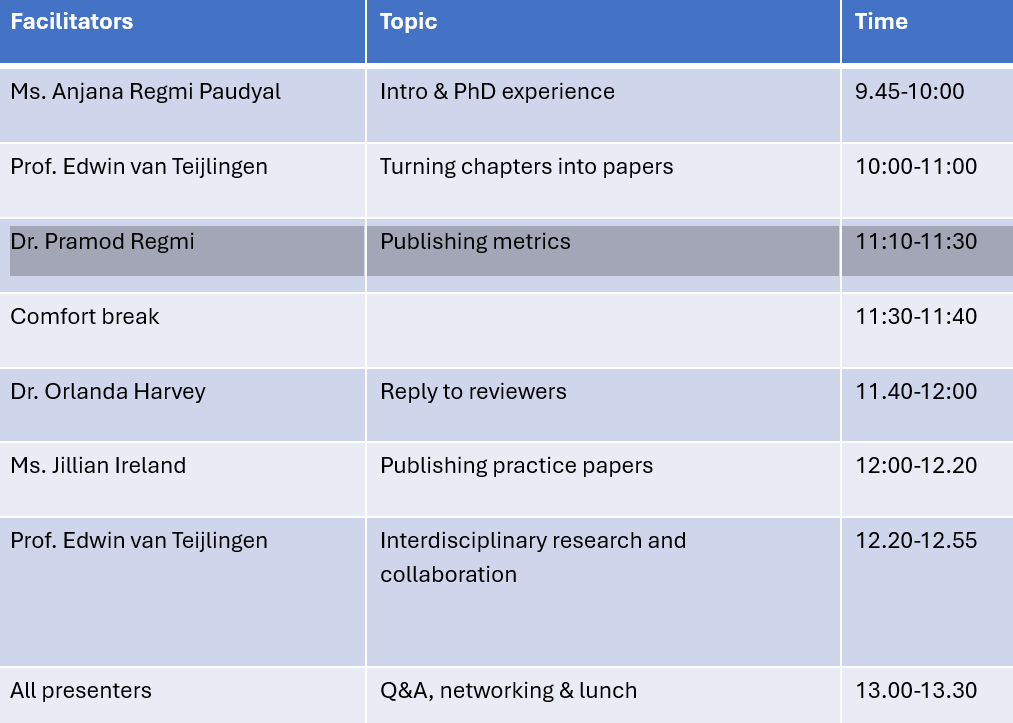
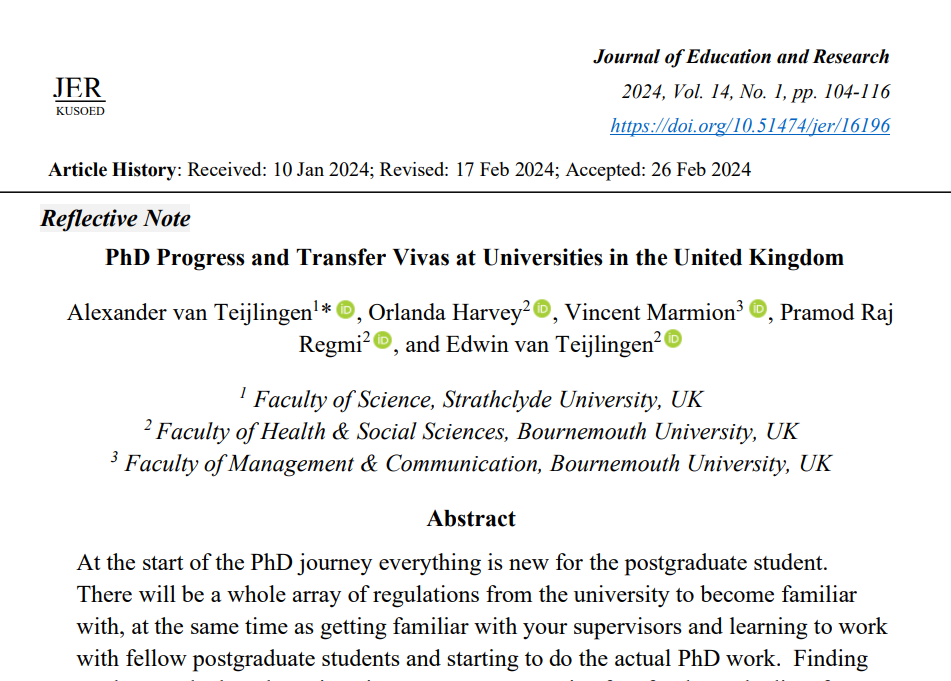
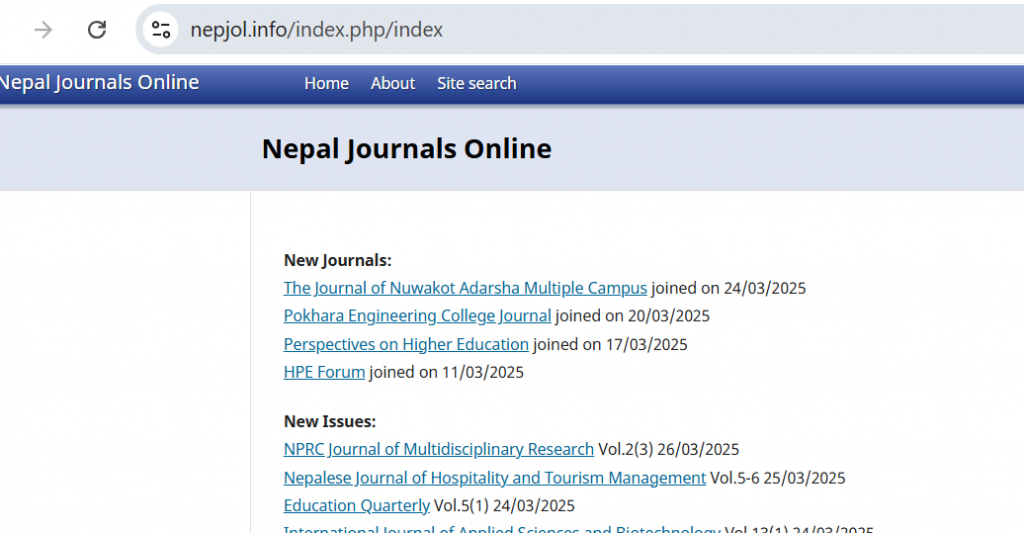


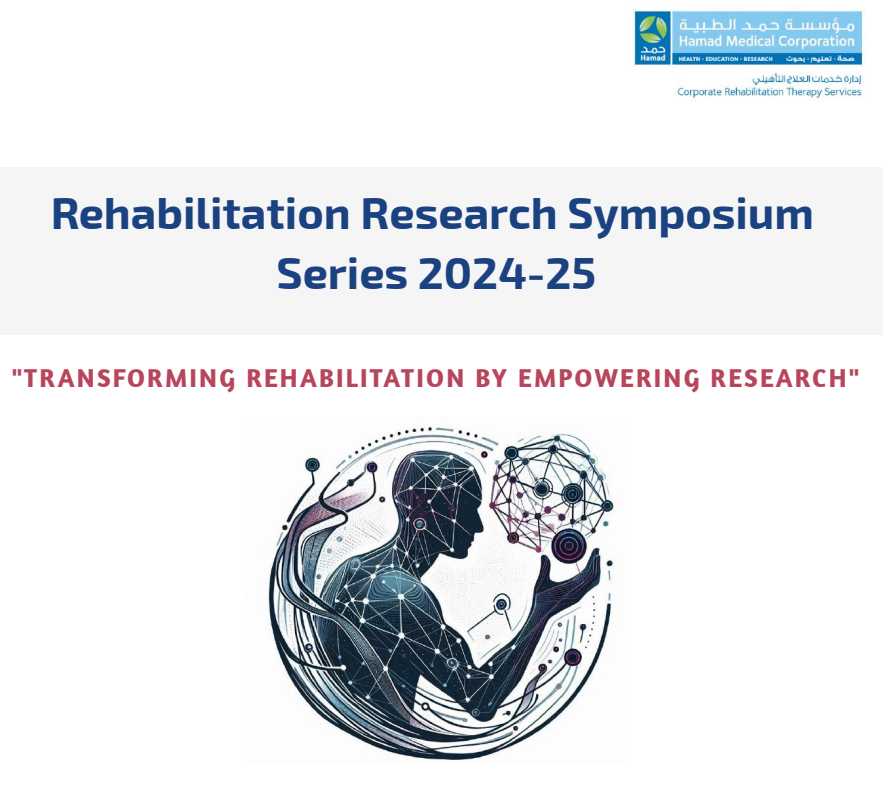

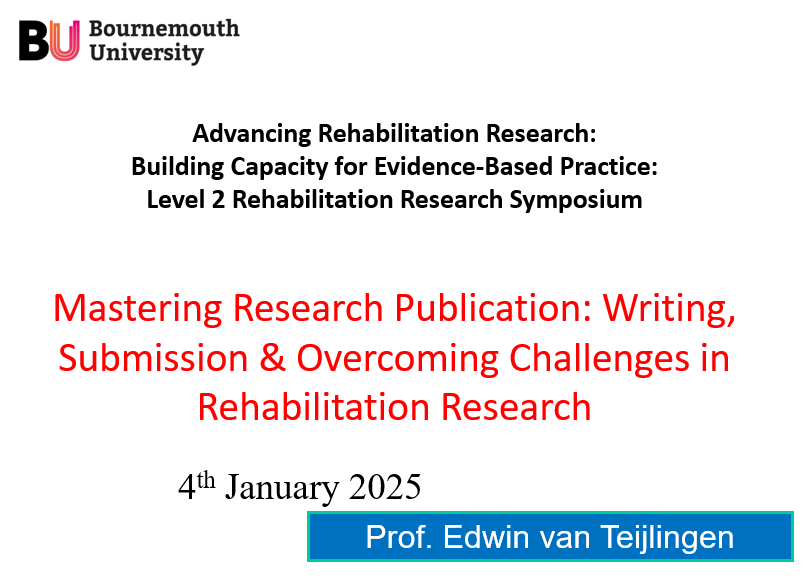
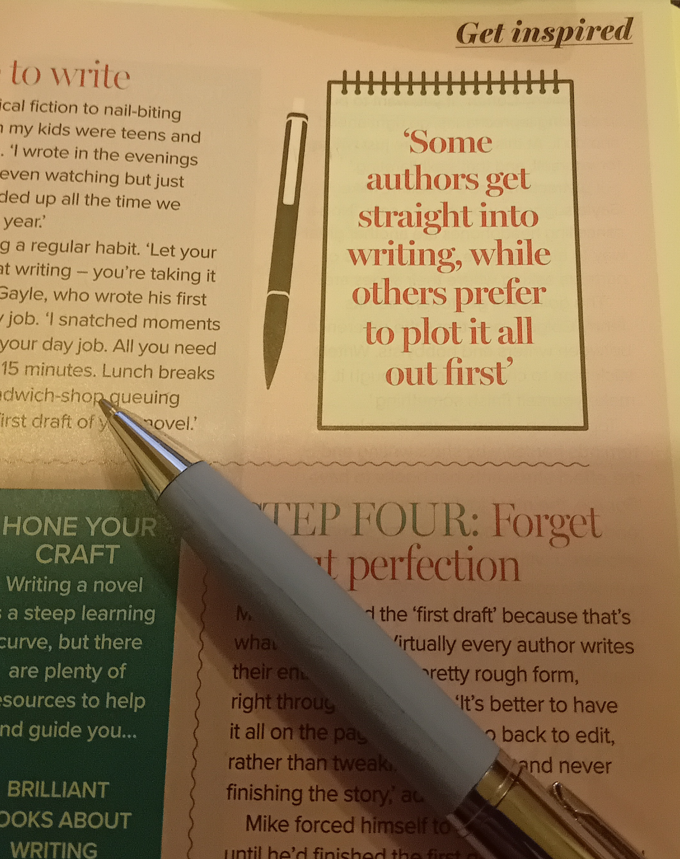
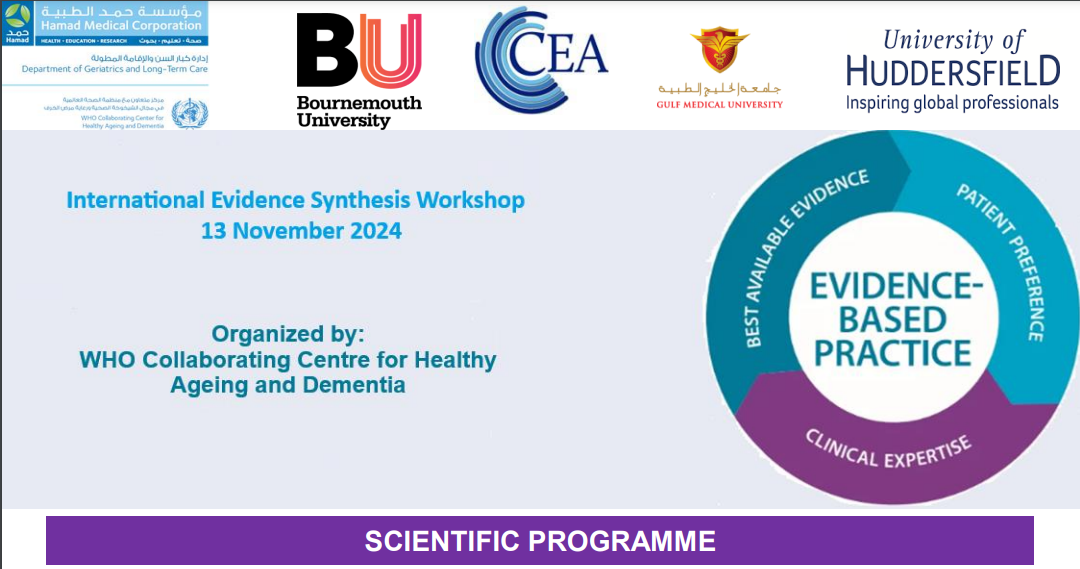
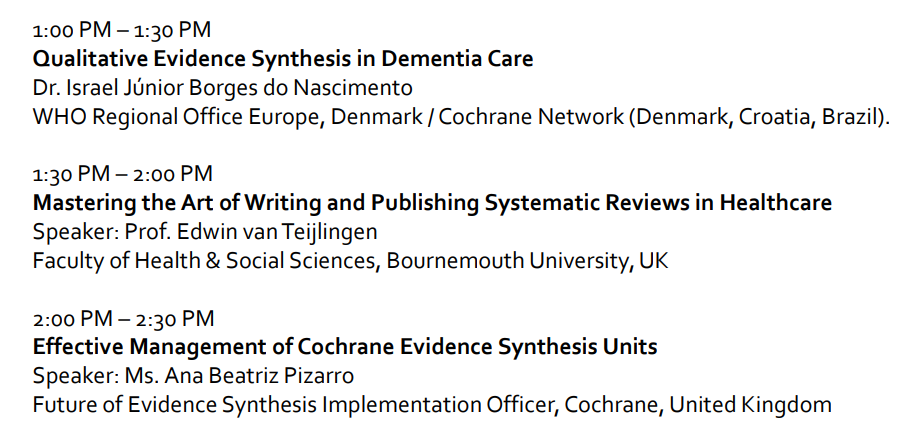
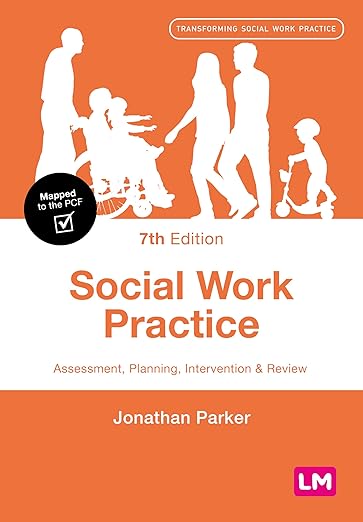
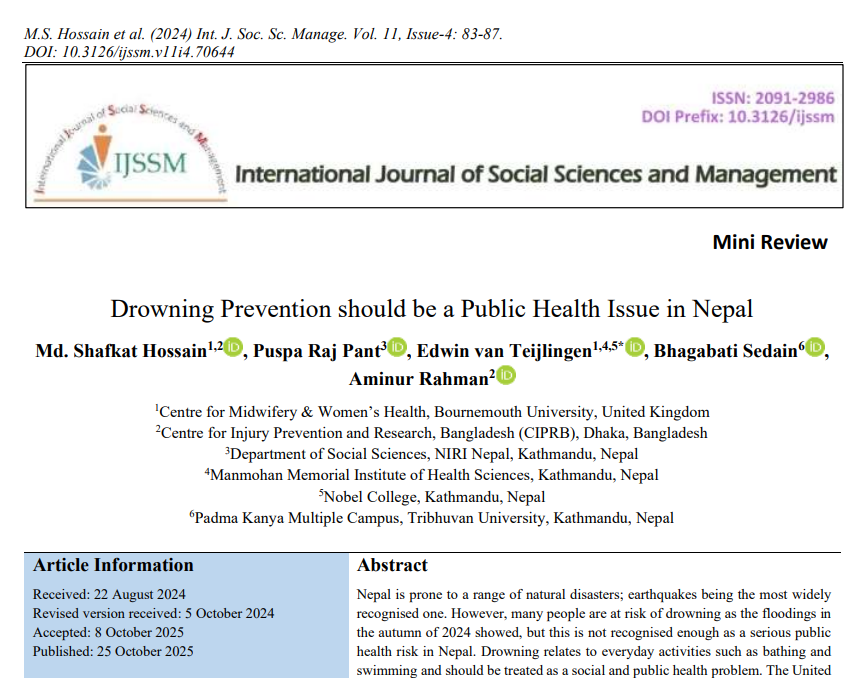
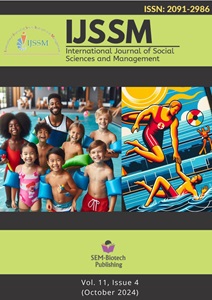

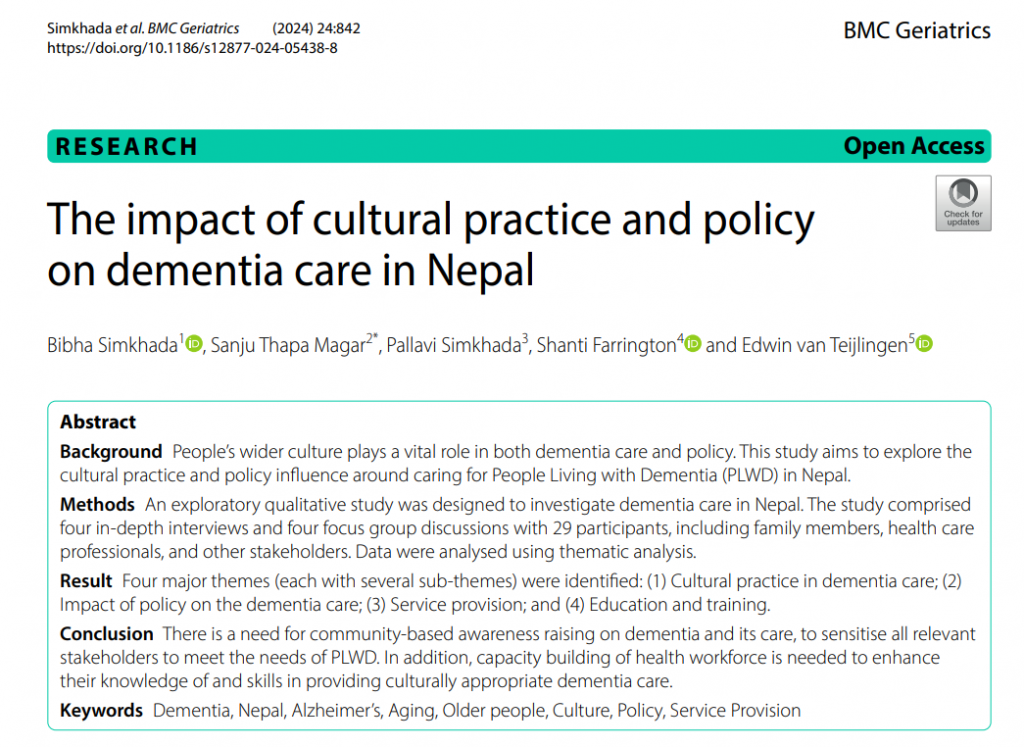

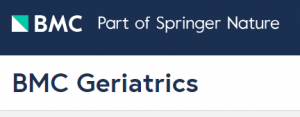

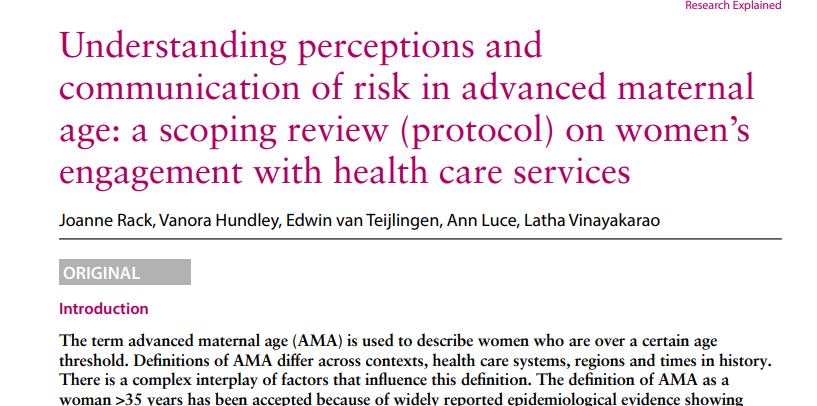
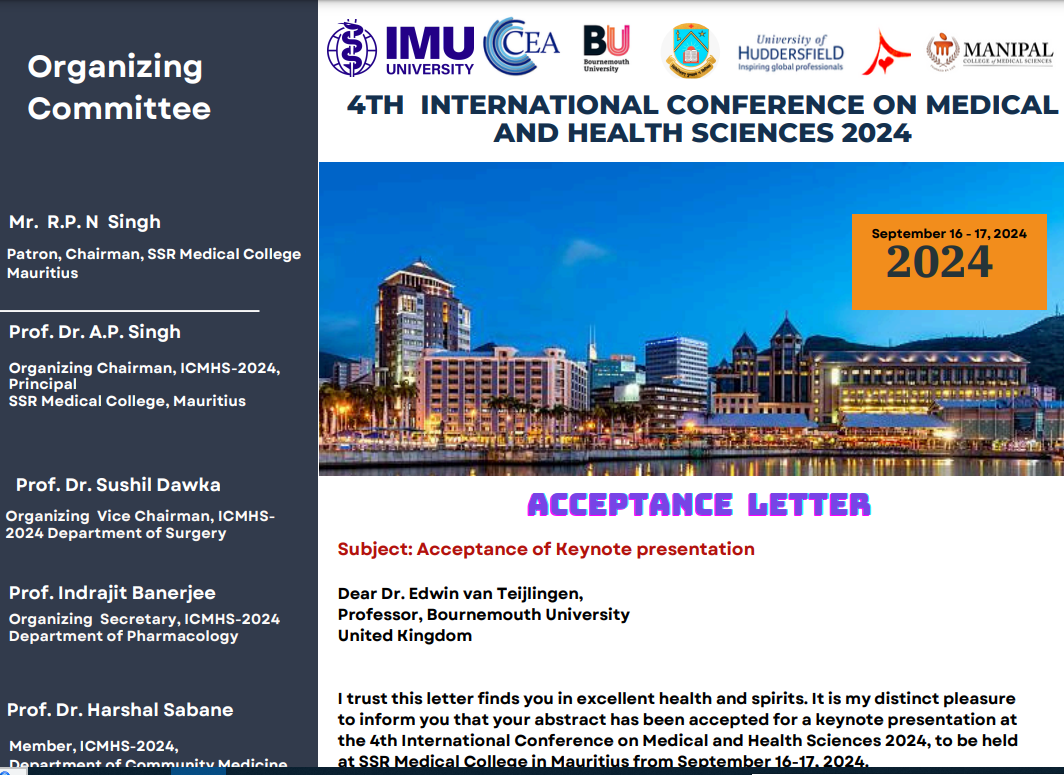


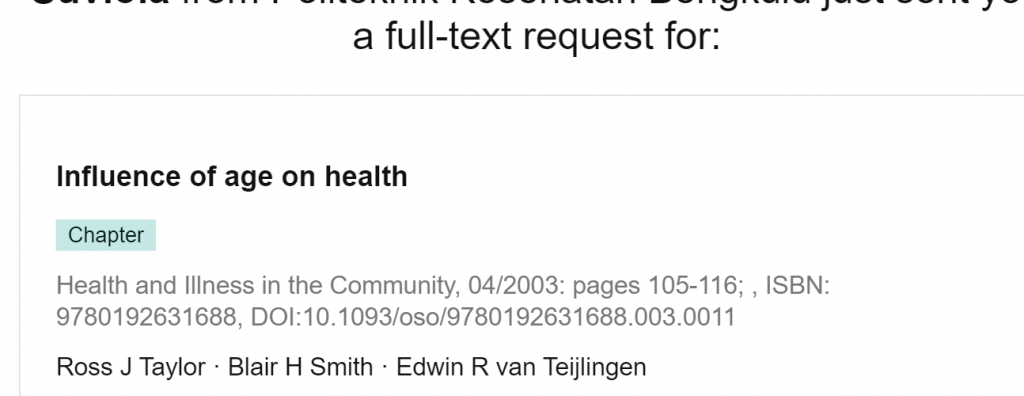
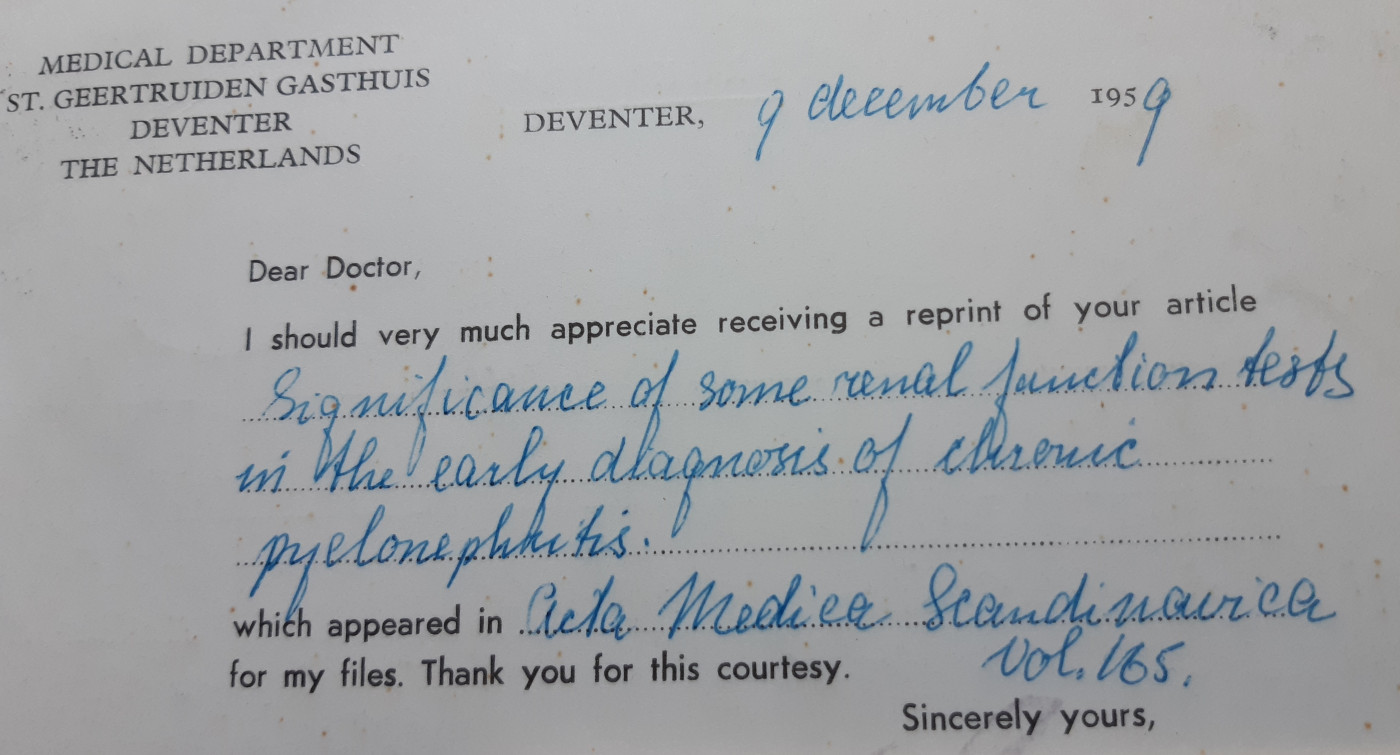

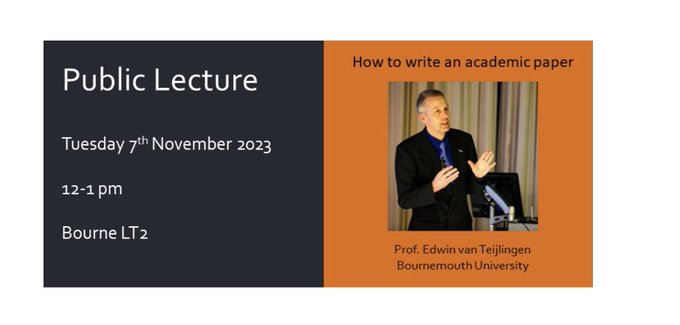 Professor Edwin van Teijlingen in the Centre for Midwifery & Women’s Health (CMWH) has been invited to speak at Royal Holloway, University of London, about writing an academic paper. His public lecture will be coming Tuesday lunch time in the appropriately named ‘Bourne Lecture Theatre’ at Royal Holloway. Prof. van Teijlingen, together with several Bournemouth University (BU) colleagues, has published a text book [1], several book chapters [2-18] and a large number of papers [19-38] about a wide-range of aspects of academic writing and publishing. One of former BU academics, who co-authored a book chapter [10], and two papers [21, 25], is Dr. Preeti Mahato. She is Lecturer in Global Health at Royal Holloway as well as Visiting Faculty in BU’s Faculty of Health & Social Sciences.
Professor Edwin van Teijlingen in the Centre for Midwifery & Women’s Health (CMWH) has been invited to speak at Royal Holloway, University of London, about writing an academic paper. His public lecture will be coming Tuesday lunch time in the appropriately named ‘Bourne Lecture Theatre’ at Royal Holloway. Prof. van Teijlingen, together with several Bournemouth University (BU) colleagues, has published a text book [1], several book chapters [2-18] and a large number of papers [19-38] about a wide-range of aspects of academic writing and publishing. One of former BU academics, who co-authored a book chapter [10], and two papers [21, 25], is Dr. Preeti Mahato. She is Lecturer in Global Health at Royal Holloway as well as Visiting Faculty in BU’s Faculty of Health & Social Sciences.










 SPROUT: From Sustainable Research to Sustainable Research Lives
SPROUT: From Sustainable Research to Sustainable Research Lives BRIAN upgrade and new look
BRIAN upgrade and new look Seeing the fruits of your labour in Bangladesh
Seeing the fruits of your labour in Bangladesh Exploring Embodied Research: Body Map Storytelling Workshop & Research Seminar
Exploring Embodied Research: Body Map Storytelling Workshop & Research Seminar Marking a Milestone: The Swash Channel Wreck Book Launch
Marking a Milestone: The Swash Channel Wreck Book Launch ECR Funding Open Call: Research Culture & Community Grant – Application Deadline Friday 12 December
ECR Funding Open Call: Research Culture & Community Grant – Application Deadline Friday 12 December MSCA Postdoctoral Fellowships 2025 Call
MSCA Postdoctoral Fellowships 2025 Call ERC Advanced Grant 2025 Webinar
ERC Advanced Grant 2025 Webinar Update on UKRO services
Update on UKRO services European research project exploring use of ‘virtual twins’ to better manage metabolic associated fatty liver disease
European research project exploring use of ‘virtual twins’ to better manage metabolic associated fatty liver disease